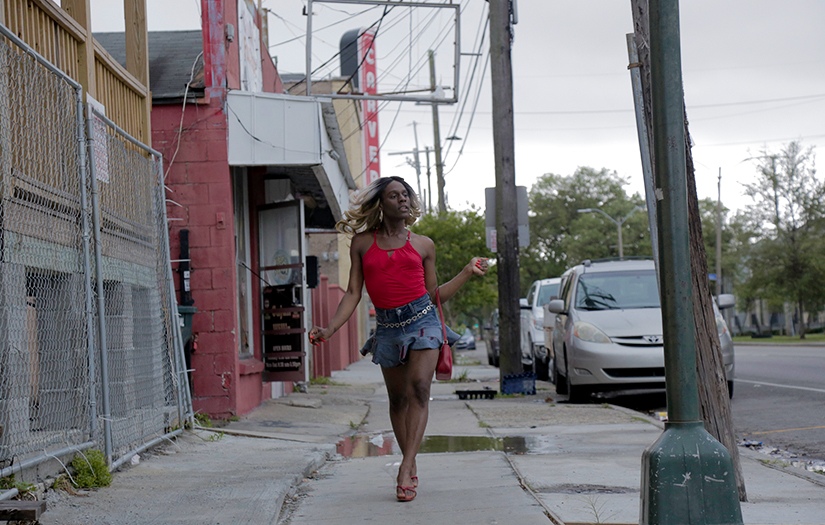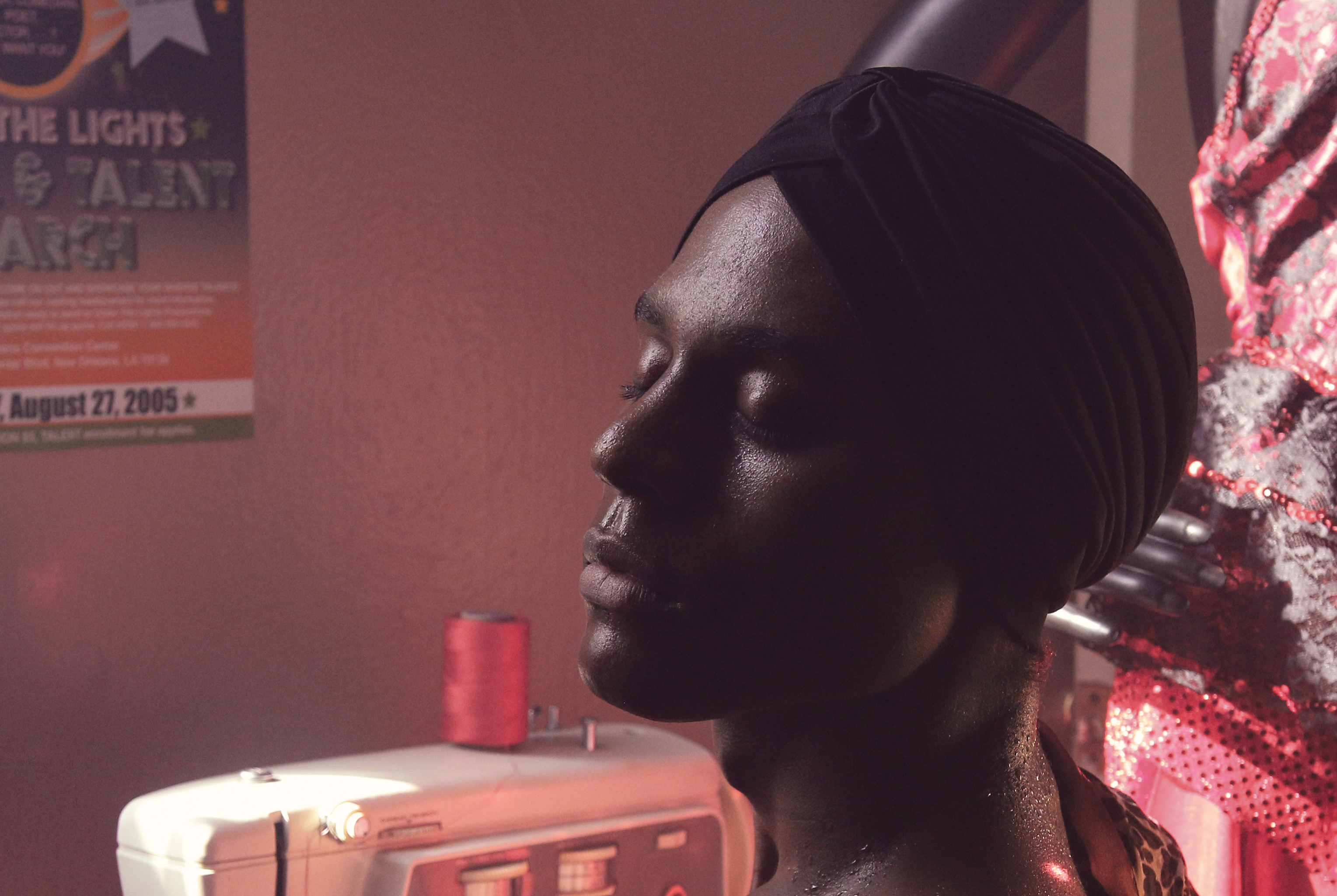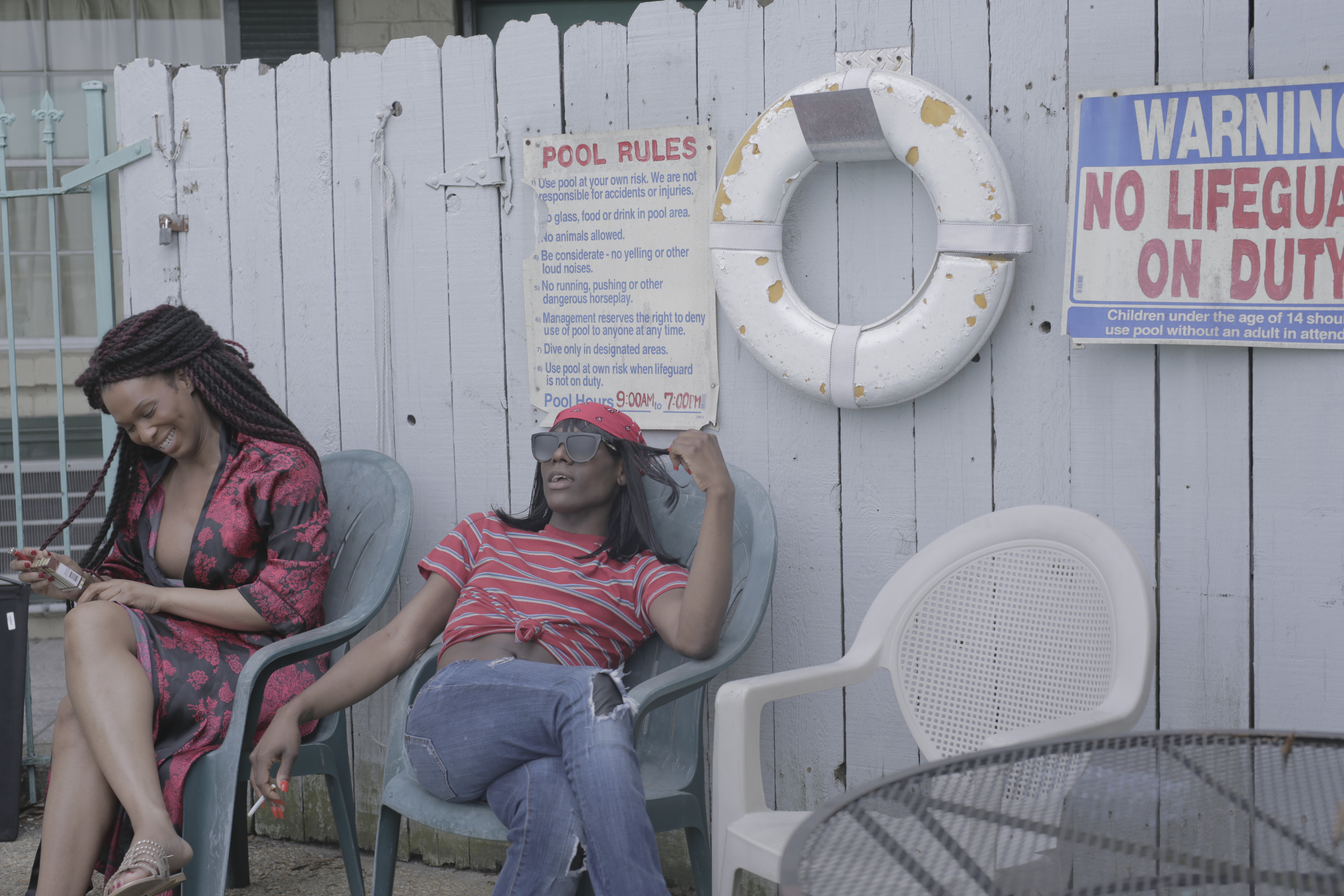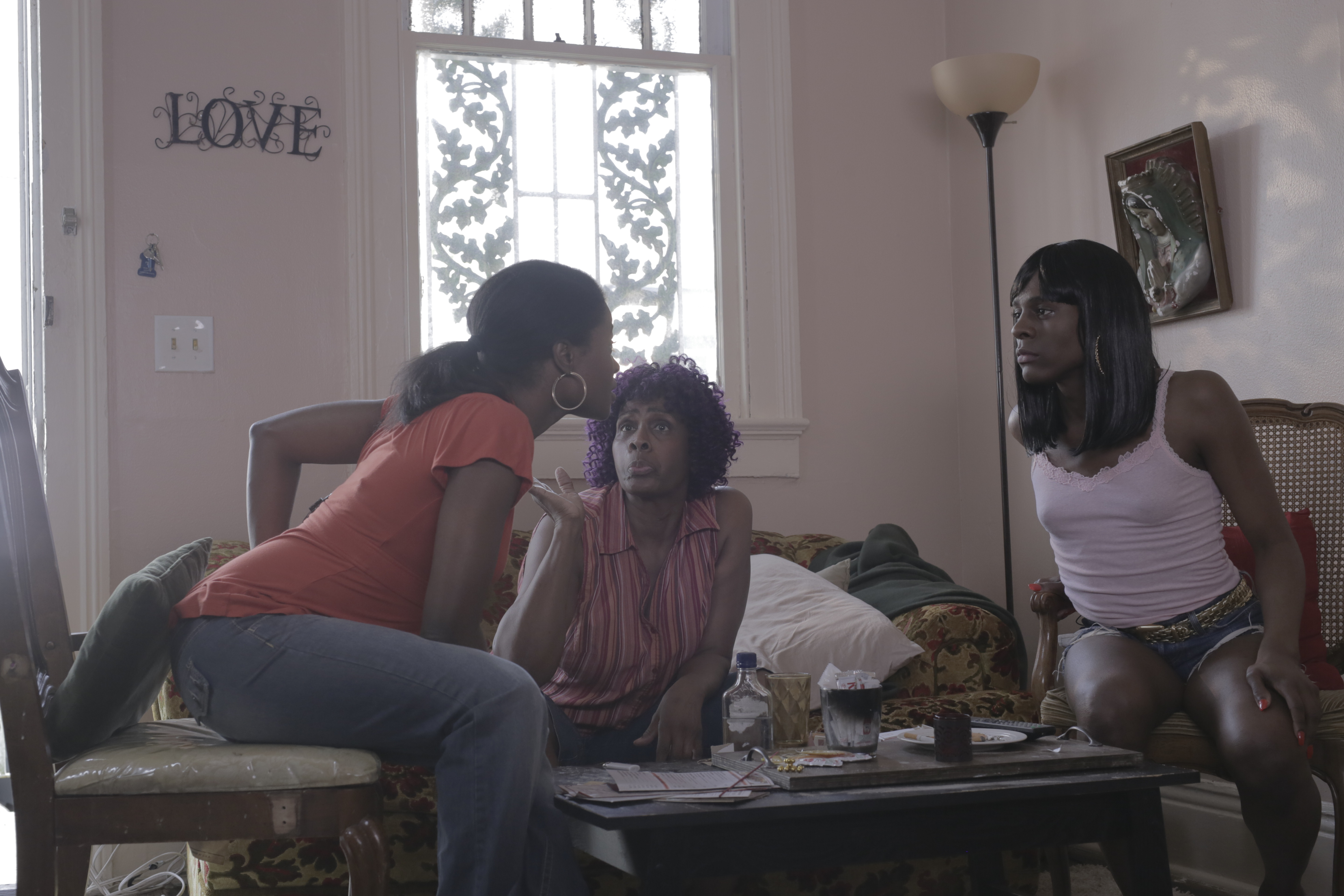
Source: Reginald Dorns / Reginald Dorns
Yesterday, Issa Rae’s “Color Creative” launched the first episode of the new webseries called “King Ester.” It follows the life of a poor, Black trans woman trying to make a name for herself in New Orleans, Louisiana, the week before Hurricane Katrina. We had the chance to speak with the creator and series showrunner Dui Jarrod and lead actress Rowin Amone, who plays the role of Ester Pappion. See what the two had to say below.
MN: Dui, how did this story come to you? What let you know this was something you needed to bring to the world?
Dui Jarrod: I wrote a play about a young man named King who was trying to start a church for the hood in New Orleans and everybody really loved the character Ester. And when I decided to exercise my skills, I decided to give Ester her own platform. The work is derived from an initial piece that I created.
MN: Rowin, how did you hear about the role?
Rowin Amone: I heard about the role through a mutual friend of ours and I met him casually in New Orleans. He thought I would be perfect for the project and a year or so later, I did a series of auditions and I got the part.
Dui: I kept telling her she was auditioning against other people but it was a total lie. I totally knew that she was the perfect person the first time that I met her but I had to make her work for it.
MN: Can you both speak to the importance of showing Ester’s journey at this stage? With the few representations we see of trans women, we see them at a certain stage, they’ve completed their transition, they may have a certain level of passability in society. Why was it important to show Ester at this point?
Rowin: I think that’s such a great question because often times we do get that representation of cis-passability and being at a certain point in your transition. And I feel that even when with the surgeries, the transition is never over because it’s within the spirit and it’s not just about the physical. So with Ester’s character, it was so beautiful to see a spectrum of an experience—being the trans experience—that shows her beauty and where she is. And it didn’t make it all about her transition. To me, being where I am in my personal life, I felt that I needed to portray this role to bring that representation and visibility to this part of the spectrum.
Dui: Also, it’s 2005 in New Orleans and she’s poor. Even just the access to the information. I don’t think she would have even had a computer.
Rowin: She wouldn’t have had a computer. And I don’t think she had access to hormones at that time. And if she did, they probably were like the street ones that aren’t good for you.
MN: So I think that requires the audience to ask some questions of themselves. Some people are starting to accept transgender identity. But then we have to ask ourselves, if someone doesn’t have the money to afford the physical transformation, are we still willing to accept that person, their identity and who they say they are?
Dui: Right.
Rowin: Exactly.
MN: I don’t think we think about the money that goes into it and how some people don’t have access to that.
Dui: You can’t look at Caitlyn Jenner and just assume that’s the norm.
Rowin: Or Laverne Cox in the Black community or Angelica Ross or Miss. Janet Mock.
Dui: They have money.
Rowin: Beautiful, beautiful people inside and out but they had that access. And regardless of what they had to do to get that access, it still afforded them a place in society that not many trans women get to experience.

Source: Reginald Dorns / Reginald Dorns
MN: Speaking of what people might have to do to get access, sex work is a part of Ester’s story. In the “Red Cups and Rose” interview afterward Dui, you guys called it “survival work.” Can you speak a little bit about that concept?
Rowin: Trans women, as we know, are at the bottom of the totem pole in society. So having the ability or the opportunity to go in for an interview or get seen for a certain job to allow them more financial stability and more status in society, it’s very difficult. So trans women often times have to turn to sex work for survival. So it’s a complete and utterly true statement she made in the interview because, it’s not that some don’t love it but most of them want to get out and live a better life, like we see with Ester. She’s only doing it to pay for her acting classes. She would rather be out gallivanting around Hollywood. Even if she happens to make a dress or two to make ends meet, that doesn’t afford her the financial stability that she needs so she has to engage in sex work.
MN: That scene was particularly hard to watch because I think we understand the dangers of it but not really how degrading it can sometimes be.
Dui: I wrote that specifically in that vein –he’s just a representation of all Black men. He doesn’t have a name. His name is him. He’s more of a figure of Black masculinity. There is a certain level of violence and desire that is there. So I wanted to show that in that space.
That wasn’t even one of our more difficult scenes to film.
Rowin: Laughs It wasn’t.
Dui: Probably our most difficult scene to film was when Patra had to leave for the Hurricane. That was a difficult scene. Everybody was really emotional. That was episode 6. Patra actually leaves, Ester’s safety net, her love, her sister leaves.
Rowin: For me, as a trans woman, we often times say goodbye to our sisters without knowing that that could be the last time we see them. Whether it’s due to exterior violence or natural disasters, or happenstance, you just never know when you’re going to see your sister again. So that’s what really got us in the moment and that became such a multi-dimensional scene for us, for our experience.

Source: Reginald Dorns / Reginald Dorns
MN: Another thing that struck me in the first episode was Ester’s mother—played by Janet Hubert. She’s supportive of her transition. She calls her by her name. And we don’t really get to see a lot of Black parents being supportive. So it was really interesting to see a mother who is on board and advocating for her daughter.
Rowin: It’s so beautiful because like you said that representation isn’t there and in real life. I come from a family who isn’t very supportive of my transition and how I choose to live my life and who I am in its entirety. So for Dui to write a loving, accepting, nurturing, supporting mother figure, being that that’s the only parent that she does have, was beyond, beyond a blessing for me because I don’t experience that. So in a way, it kind of made me feel welcome and more at home and more affirmed than I do in my normal life.
Dui: In episode 5, probably the best monologue. Oh my goodness, Rowin delivers this beautiful monologue that expresses that relationship with her mother. And it’s just—it moves me almost every time I hear it. Because it’s so matter of fact and it’s so simple. Love is—it’s not that hard to love somebody. It’s really not. People complicate that with expectations and bullsh*t. But it’s really not hard to love someone.
MN: Rowin, how much does art have to be advocacy at this point in your career, telling this type of story? And what do you want people to take away from your portrayal of Ester?
Rowin: I’ll start with the art and the advocacy in my art. At first, I wasn’t about it but now I know that I have a duty to my community, to the Black trans community to represent us well every chance that I get. So now, it’s null and void for me not to consider advocacy in my art.
Dui: Which is unfair.
Rowin: It’s totally unfair.
Dui: I think that you should just be able to be an artist. You don’t have to be an activist. But because of the social position that you’re in and the fact that you are being elevated, it forces you into that lane.
Rowin: But what I would like for people to take away from the series is Ester’s humanity and just the humanity in all of these characters. It’s a very universal story. Someone can find themselves in any of these characters, whether their experiences are exactly the same or not. At the end of the day, it’s about love, acceptance and support. I just want people to look at it as a human story.
Dui: I think a lot of people assume that because of this work that I’m also an activist. And I’m not. I’m a storyteller. Rowin and I both are storytellers. I’m a writer/director. I struggle too with that. I’m getting a lot of calls to speak and talk. And I don’t know if I’m the person that should be speaking and talking to the trans community. I feel like I need to be talking to the cis community about ‘this is how you support,’ ‘this is how you don’t marginalize.’
Rowin: This is how you create space
Dui: That’s it. Thank you. This is how you create space for someone else in a respectful way that honors them, their work and their story. One thing that Rowin and I really agreed on was how we approached the work. And it had to be approached from a very humanistic, empathetic standpoint. And I feel like we had a beautiful working relationship. I think both of us were fearful.
Rowin: We wanted to get it right.
Dui: We wanted to get it f*ckin right. We did. But it was beautiful.

Source: Reginald Dorns / Reginald Dorns
MN: Dui, what would you say to the cis community? We write for mostly cis women and a lot of them are struggling to embrace acceptance and treating people kindly. What would you say to people who are struggling to accept the trans community—which is our community.
Dui: I think naturally, especially Black people, we fear anything that we don’t natively do. With therapy, we scared to go to therapy. We’re scared to go to the doctor. We’re scared to go away for school. We’re so scared of all of these things. But tell me a time, that you embraced something new and you didn’t benefit from it? Creating more space at the table, makes you a better person. I’m a better person for knowing Rowin, for knowing Angelica. The more space that you create, the more open your heart becomes. And because I’ve been able to do that, I’ve gotten more love back from so many different places. That would be my advice. Creating more space, opens your heart.
You can watch the first episode of “King Ester” below.









